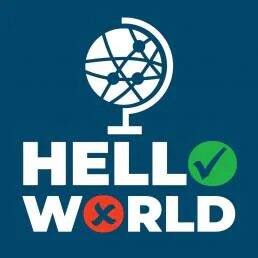



 “In college, he initially wanted to study biology, a subject that at the time was deemed to be ‘the bellwether of the 21st century’. Unfortunately, his scores weren’t high enough. He opted instead to enroll in electrical engineering, but before long had switched to software engineering. Electrical engineering, he reasoned, provided ‘few chances to apply textbook theory to real-life applications’ whereas the cycle of computer programming was far shorter and the results could be seen faster.”We’ve talked about careers in this column before. As the late management guru Clayton Christensen had said: your happiness with your career depends on two factors. Hygiene factors like money, a decent workplace, co-workers, and so on. And motivators like is this work meaningful? Does the job give me a chance to develop? Am I learning, being recognized for achievements and given responsibility? Motivators, as you’ve probably guessed by now, have more of an impact on your happiness than hygiene factors.This column is an attempt to wind the clock even further back in time. Does something you do in college, or even before, have anything to do with the success of your career later? This is where Yiming’s approach is illustrative. It deals with something called match quality. Match quality is explained by David Epstein in his book Range: Why Generalists Triumph in a Specialized World. Epstein writes: Match quality is a term economists use to describe the degree of fit between the work someone does and who they are—their abilities and proclivities. The book convincingly argues that contrary to popular belief, some of the most successful people in the world are people who don’t specialize early but have jumped different fields in search of match quality. This includes the likes of Roger Federer and Charles Darwin. In this context, what Yiming did (perhaps inadvertently) is genius. What young Yiming did early on was to first discard a subject where practical feedback was slow to come by. He whittled down his broad match into computer science which would give him quicker feedback from practical applications. Which means you get more attempts to notch up smaller wins. That also increases your odds of winning big at some point. As Epstein puts it, "Exploration is not just a whimsical luxury of education; it is a central benefit."In today’s world, there are many more career tracks that offer you the opportunity to get rapid feedback. Creators, for instance, have the opportunity to make videos or digital goods in rapid succession and get feedback. Using No-Code tools to create prototypes and launching on platforms like ProductHunt, making a film using the Unreal Engine from your desk or even creating content on Twitter offers you rapid feedback. In your early years, when the stakes are relatively low, focus on finding match quality and not so much on a specialization.
“In college, he initially wanted to study biology, a subject that at the time was deemed to be ‘the bellwether of the 21st century’. Unfortunately, his scores weren’t high enough. He opted instead to enroll in electrical engineering, but before long had switched to software engineering. Electrical engineering, he reasoned, provided ‘few chances to apply textbook theory to real-life applications’ whereas the cycle of computer programming was far shorter and the results could be seen faster.”We’ve talked about careers in this column before. As the late management guru Clayton Christensen had said: your happiness with your career depends on two factors. Hygiene factors like money, a decent workplace, co-workers, and so on. And motivators like is this work meaningful? Does the job give me a chance to develop? Am I learning, being recognized for achievements and given responsibility? Motivators, as you’ve probably guessed by now, have more of an impact on your happiness than hygiene factors.This column is an attempt to wind the clock even further back in time. Does something you do in college, or even before, have anything to do with the success of your career later? This is where Yiming’s approach is illustrative. It deals with something called match quality. Match quality is explained by David Epstein in his book Range: Why Generalists Triumph in a Specialized World. Epstein writes: Match quality is a term economists use to describe the degree of fit between the work someone does and who they are—their abilities and proclivities. The book convincingly argues that contrary to popular belief, some of the most successful people in the world are people who don’t specialize early but have jumped different fields in search of match quality. This includes the likes of Roger Federer and Charles Darwin. In this context, what Yiming did (perhaps inadvertently) is genius. What young Yiming did early on was to first discard a subject where practical feedback was slow to come by. He whittled down his broad match into computer science which would give him quicker feedback from practical applications. Which means you get more attempts to notch up smaller wins. That also increases your odds of winning big at some point. As Epstein puts it, "Exploration is not just a whimsical luxury of education; it is a central benefit."In today’s world, there are many more career tracks that offer you the opportunity to get rapid feedback. Creators, for instance, have the opportunity to make videos or digital goods in rapid succession and get feedback. Using No-Code tools to create prototypes and launching on platforms like ProductHunt, making a film using the Unreal Engine from your desk or even creating content on Twitter offers you rapid feedback. In your early years, when the stakes are relatively low, focus on finding match quality and not so much on a specialization. Discover the latest Business News, Sensex, and Nifty updates. Obtain Personal Finance insights, tax queries, and expert opinions on Moneycontrol or download the Moneycontrol App to stay updated!
Find the best of Al News in one place, specially curated for you every weekend.
Stay on top of the latest tech trends and biggest startup news.